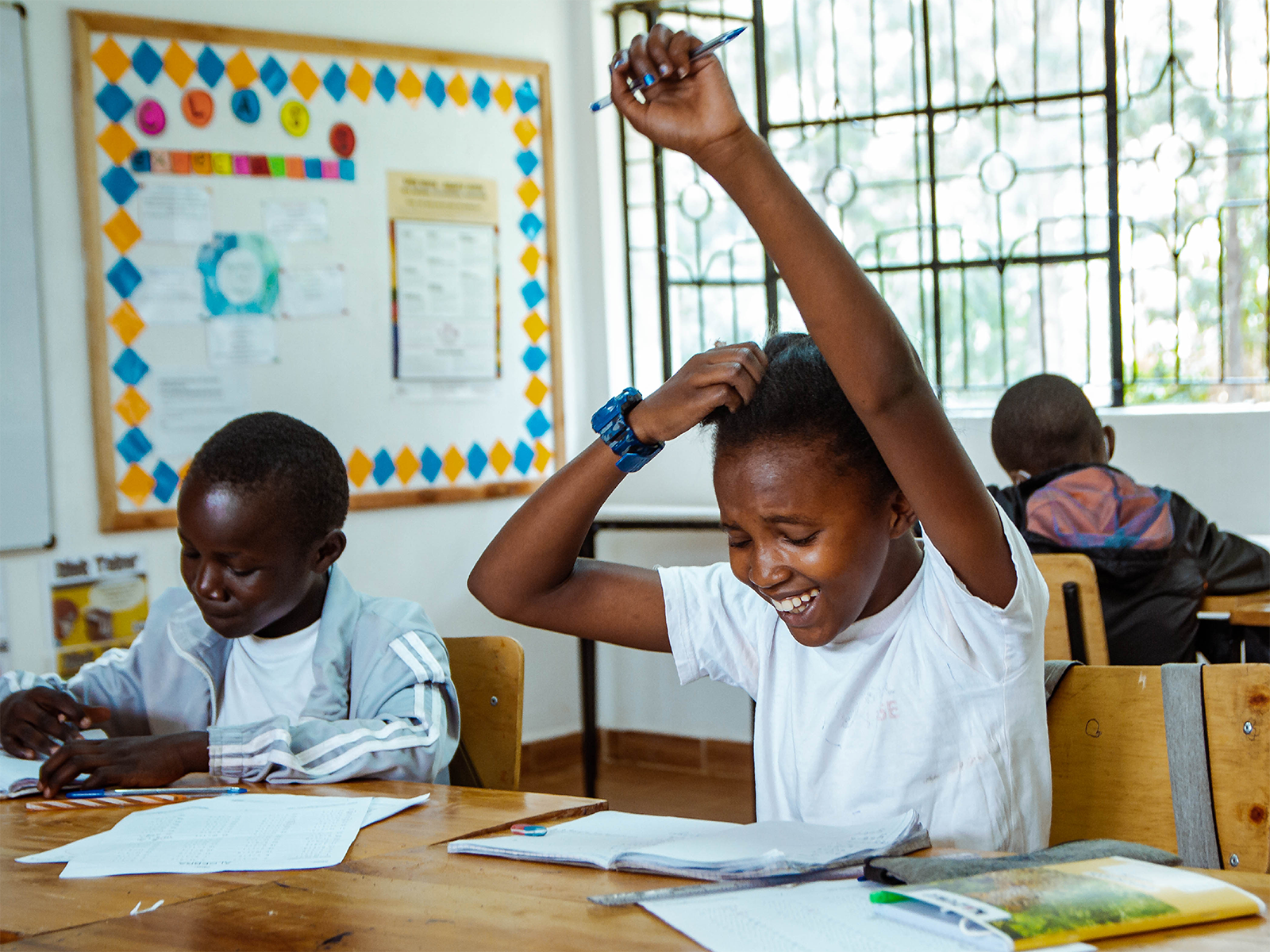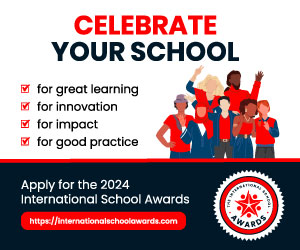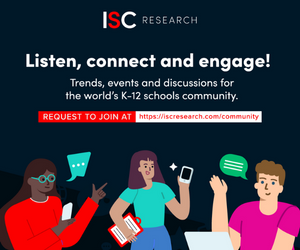By Rachael Wanjiru Mwangi
Still I Rise is an NGO that provides high-quality education to out-of-school and refugee children. Its international school in Nairobi is the first school in the world providing the IB framework for free to vulnerable Kenyan and refugee children. The school received a Highly Commended award at the 2022 International School Awards.
Still I Rise International School, Nairobi is located in the heart of Mathare slum, the second largest slum in Africa which hosts approximately 600,000 people. The population comprises low-income earners and there is a high unemployment rate, a high crime rate and abject poverty. The slum exposes children to hardship which hinders their education, health and social development. Poverty has denied children their basic needs, making it hard for them to access education.
Our school is home to 51% refugees from different nationalities namely, Democratic Republic of the Congo, Burundi, Ethiopia, Uganda, Somali, South Sudan and Rwanda, and 49% Kenyans from vulnerable backgrounds.
We offer the International Baccalaureate Middle Years Program integrated with co-curricular activities. Students receive two meals a day, uniforms designed by Armani especially for us, stationery and health insurance.
Our mission is to raise passionate, caring and brave leaders to shape a peaceful tomorrow through the best quality education. Our education method is characterised by four pillars.
“We want our schools to be like home for our students, where they feel welcomed, loved and heard. We believe our students can achieve anything with the proper support, and we can’t wait to see them grow into the leaders of tomorrow”.
School is home: the importance of beauty
Even in the most cutting-edge pedagogical studies, the concept of ‘beauty’ is rarely connected with education. At Still I Rise, we have discovered a key correlation between beauty and learning.
When we renovate a building that is to become one of our schools, we pay attention to every detail. We use materials that feel welcoming, we enhance spaces through the use of light, we build beautiful schools. And when students are surrounded by beauty, they don’t want to leave. Our students love being in our school, not just because they live in a slum, but because they feel seen, appreciated and welcomed and therefore they learn faster and with less effort.
And that’s not all. Feeling cared for, our students spontaneously care in return – they tidy up after themselves and keep their space clean. They feel ownership of their school, they are not guests in it, and that’s how ‘school’ becomes a ‘home’. It’s their school. Their home.
This is very visible in our Common Hall. Built with wood, glass, soft and welcoming surfaces, and abundant natural light, this room is the beating heart of our school. This is where students and teachers go during break time to chat, read, play or do whatever they want This is where informal learning happens, where students socialise and where they build their soft skills.
We don’t want our schools to be a factory where every student gets taught the same subjects in the same way, but rather a garden where each student can blossom and follow their own path.
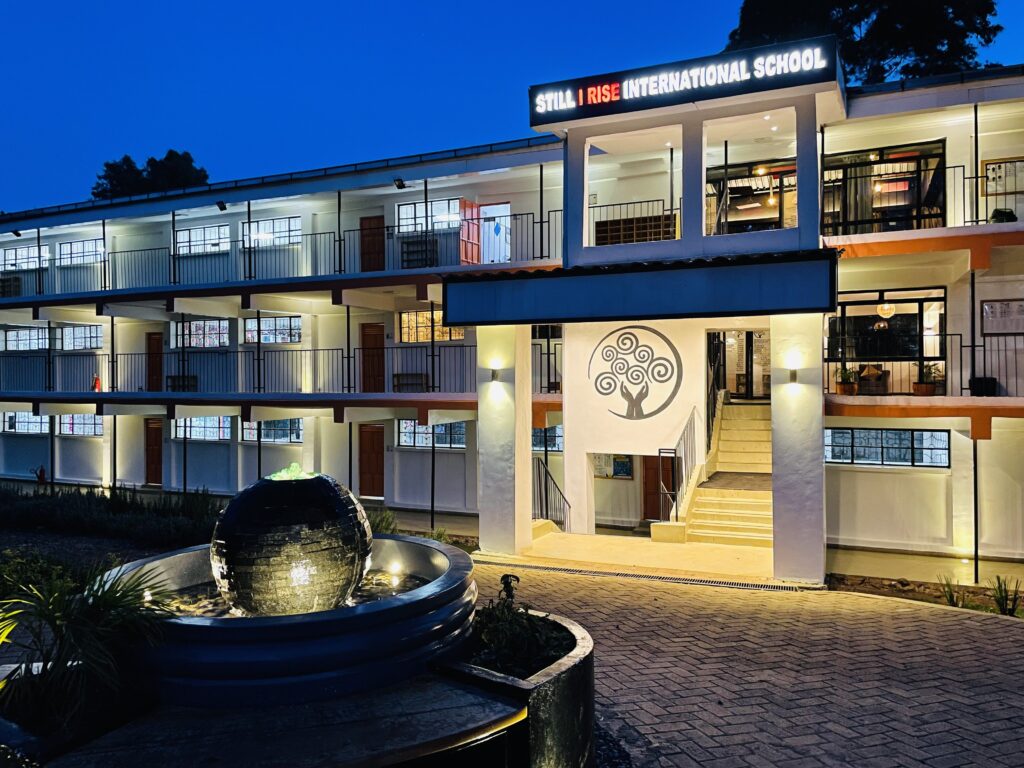
Students at the centre: the courage of democracy
At Still I Rise, our teachers don’t do lectures, they are facilitators. We believe that there is an equitable dynamic between teacher and student; both have prior knowledge to contribute to the learning and so are ready for exchange.
Teachers enter the classroom with a goal in mind and a fundamental question for students to answer using the available resources (books, technology, each other and the teacher). Each student forges a different path, according to their individual experience, culture and sensibility. Students share their findings, coming together to collectively answer the question, each bringing unique information and perspectives resulting in polychromatic, rich and individualised learning.
This is a constructivist lesson. It is creativity, critical thinking and democracy. The design of our classrooms fully reflects this, as well as the values we teach along with the educational content. In fact, for a student to be ready for revolutionary education, it is first necessary for them to become open-minded. This is a scientific, meticulous and organic process.
Every day, integrated into the teaching units, we teach our values, so that our students can be ambitious, brave, transparent, inquiring, knowledgeable, thinking, communicating, principled, open-minded, caring, risk-taking, balanced and reflective.
The teacher as a mentor: the strength of family
To achieve innovative learning, teachers are key. At Still I Rise, our teachers are seen as family members. They are authority (never authoritarian) figures in the classroom, but also confidants and mentors outside.
Every student, especially during adolescence, needs adult role models to look up to, and to act as guides. As parents are often almost rejected, albeit temporarily, by the child as part of the natural process of enfranchisement and self-definition, who, then, will qualify as a role model for a teenager? Nowadays it is often celebrities and ‘influencers’. At Still I Rise, we offer an alternative in a safe and controlled environment, hiring teachers who can be mentors. To find the right people, we have had to completely revisit our recruitment process.
Our first teachers were recruited following a more traditional approach: looking at degrees, certificates and an ability to plan lessons and units. However, we realised that these are secondary skills that can be learned with training and support. What cannot be learnt, however, are passion and interpersonal skills. So we have developed a new recruitment system that, through questions and practice tests, we believe is able to reveal the passion and conviction of the candidate.
Global thinking: the revolution of freedom
Many people assume that an international school means teaching in two or more languages, or having foreign students or foreign teachers. At Still I Rise, we believe the concept of international school refers to a specific school category, both from a pedagogical and legal point of view, that teaches a curriculum that is different from the national one, and that teaches concepts rather than content.
We don’t teach European history between specific dates; we teach the concepts of epidemics, fundamentalisms, war and peace. Our students learn these concepts, re-elaborate them and create connections with the past and present, with their own lives, with other countries and so on. We don’t teach the capitals of the world, we teach the concept of capital. We don’t teach Julius Caesar, Charlemagne and Hitler, we teach the concept of empire. It is then up to the student to choose how to acquire that concept, through the historical and geographical examples that most interest them, building an individualised learning path.
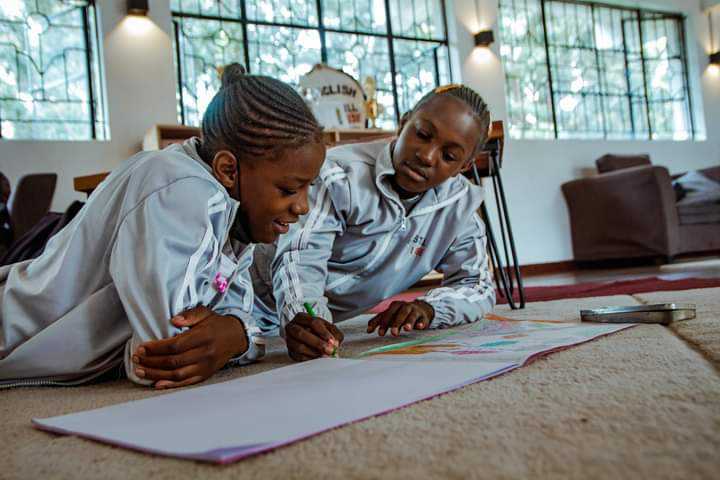
Building a collaborative community together
Jenga Pamoja means building together. This is a month-long annual school initiative to celebrate our cultural diversity. Students, parents and teachers are involved in activities that celebrate all cultures present in our school.
Through this initiative, we are able to identify and address the unique learning needs of the various nationalities and diverse economic and vulnerable backgrounds of our students. It addresses the shared values of humanity, promotes equity and appreciates language diversity and the aesthetic values of our various communities within the school. By giving every student and other stakeholders equal voice, it positively impacts the wellbeing of the entire community.
Jenga Pamoja enables us to develop our intercultural learning along with open-mindedness. We help learners to perceive language as an important instrument for human interaction. We value the many languages that are spoken in our school, having days when we greet each other in our native languages. Food and music from different communities also play a key role to help learners experience and enjoy cultural differences. Students read and recite the work of poets who represent different cultures to hear and learn the voices of others.
By sharing experiences of each other’s cultures, our students are developing a global mindset and embracing diversity in their school community.

Racheal Wanjiru Mwangi is Head of External Affairs, and the former Principal of Still I Rise International School, Nairobi, Kenya
